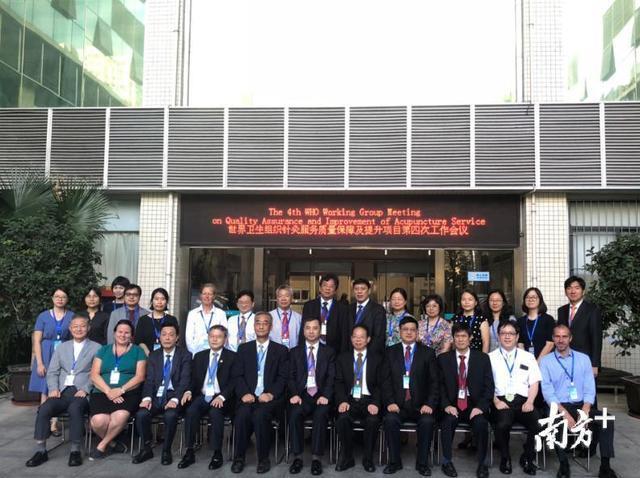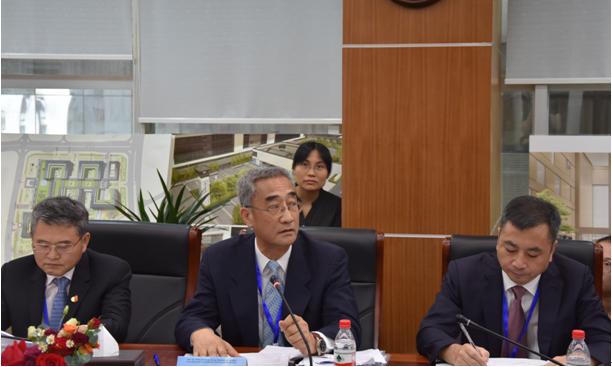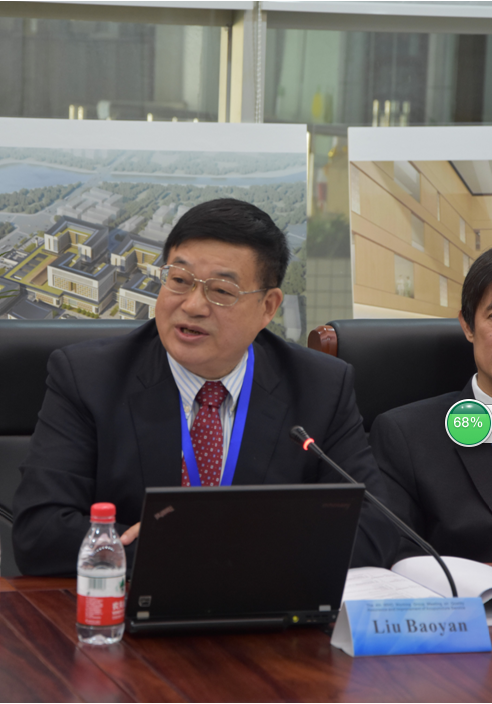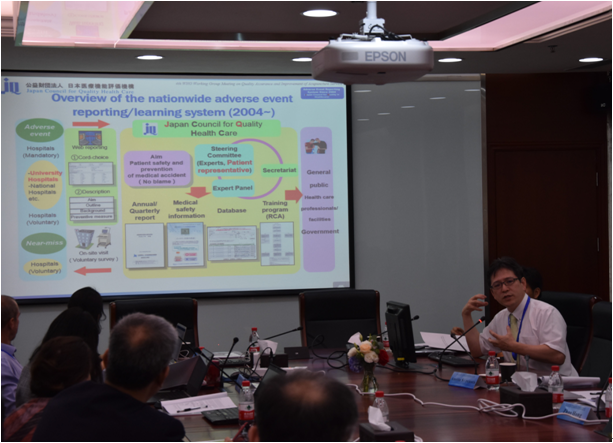WHO Working Group Meeting in Shenzhen on Quality of Acupuncture Service and Plans to Release “Toolkit” Next Year
Journalist Bao Wenjuan and Correspondent Li Xuan with Guangzhou Daily heard from Shenzhen Traditional Chinese Medicine Hospital, the Forth Affiliated Hospital of Guangzhou University of Chinese Medicine, that World Health Organization (WHO) had called “The 4th WHO Working Group Meeting on Quality Assurance and Improvement of Acupuncture Service” there these days. According to the meeting, it was projected to release the “toolkit” of quality assurance of acupuncture service in 2019 for the quality of acupuncture service to be standardized and the technology application to be regulated.

Significant Differences in Acupuncture Global Application
To one degree, acupuncture is a name card of China. But there lie various challenges in its advance towards universe. And it will be at a disadvantage in mainstream medicine given that its scientificity often faces doubt. However, due to the globalization of acupuncture, doctors and experts related get down to the use and studies of acupuncture with great enthusiasm. In this meeting gathered experts from many countries-Britain, Norway, South Korea, Japan, China and so on-for the discussion of how to enhance the quality of acupuncture service.

“The study on osteoarthritis in Germany, for example, has propelled acupuncture into the scope of medical insurance,” said Zhang Qi, official from Service Delivery and Safety, Traditional, Complementary and Integrative Medicine of WHO.

Apart from quantities of researches on pain, premature overran failure, depression and others through acupuncture has been a hit these years. During the 12th Five-Year Plan, professor Liu Baoyan with China Academy of Chinese Medical Sciences led a team to do 11 clinical researches on chronic constipation, female stress incontinence, perimenopausal syndrome and so on, and these high-quality researches have significantly promoted the internationalization of acupuncture.
“Nowadays, there exist huge differences in application of acupuncture around the world, especially in practice standard, education and training, safety, and quality of service, which hamper the development of acupuncture,” said professor Liu Baoyan, President of World Federation of Acupuncture-Moxibustion Societies and Chairman of China Association of Acupuncture-Moxibustion.
A checklist in quality of acupuncture on the way
In this meeting did experts from UK, Norway, South Korea, Japan, China and other countries update the initial progress of their researches on “Quality Assurance and Improvement in Acupuncture Service”, discuss and confer on the questionnaires of service quality, the checklist and so on.

It was projected that WHO will release the “toolkit” on quality of acupuncture service in 2019, which includes the checklist of quality of acupuncture service, questionnaire, the benchmarks for acupuncture practice and the basics of acupuncture training. At the meantime, WHO plans to promote ICD-11 (International Classification of Diseases) which for the first time includes traditional medicine. Professor Liu admitted that these actions would effectively raise the quality of acupuncture service.

 World Federation of Acupuncture-Moxibustion Societies
World Federation of Acupuncture-Moxibustion Societies